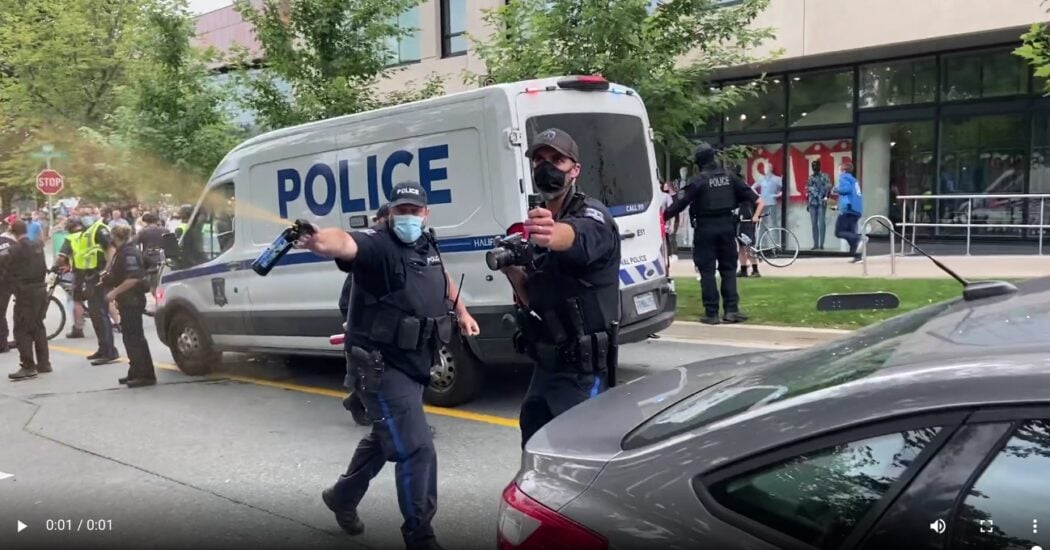
KJIPUKTUK (Halifax) – The brutal evictions of unhoused people initiated by Halifax police on August 18 are slowly disappearing from the headlines, and from the general public’s minds.
Not so of course if you are one of the unhoused people affected by the still very real threat of eviction. While the city’s promise of hotel rooms has in many cases proven to be a lie, advocates report that police continue to tell unhoused people to leave their camps. The absence of an eviction moratorium and the overall lack of clarity is wreaking havoc with people’s mental health.
Thankfully, the push back continues.
First of all, there is of course People’s Park, which is becoming a refuge for as many as 18 people, living in tents and mutual aid’s crisis shelters, supported by volunteers of the P.A.D.S. Community Network.
Their numbers have grown substantially in the past week after police evicted smaller encampments and told them to head to Meagher Park, the CBC reports this morning.
But more is happening that hasn’t been widely reported.
On August 30th, Leilani Farha, the former United Nations Special Rapporteur on the right to housing, sent a letter to mayor Savage and councillors expressing alarm about the city’s approach.
“I draw to your attention that the City of Halifax and anyone exercising government authority on behalf of the City or the Province have international legal obligations to ensure the implementation of human rights, including the right to housing,” writes the global director of The Shift.
“Inhabitants must not be removed from their homes without their consent, participation, and without adequate safeguards in place, including the provision of alternative housing that is accepted by residents. Where people are removed from their homes in a way which is not in accordance with this, this is known as a ‘forced eviction’ and is a gross violation of human rights and international law,” Farha writes.
As well, immediately after the August 18 debacle the Nova Scotia Policing Policy Working Group (NS PPWG) called on the Board of Police Commissioners to order an independent review.
This same call has assumed the form of a petition initiated by the East Coast Prison Justice Society on the change.org network, calling on councillor Lindell Smith, as chair of the Board, order an independent, civilian review of the Halifax Regional Police’s actions on August 18, 2021, in coordination with any related reviews or investigations that may be ordered by HRM Regional Council.
Smith has argued that the Board’s ability to question police is extremely limited, but NS PPWG refers to the Police Act itself, which under section 55 allows police boards to ask questions and issue directions and set priorities, as long as they don’t directly interfere with operational matters in a narrow sense.
See also: The Board of Police Commissioners has more power than chair Lindell Smith thinks
Interfering with journalists and threatening them with arrest, the use of excessive force and pepper spray, police removing name tags all warrant further scrutiny, the petition states.
A model to follow would be the 2012 independent Civil Review commissioned by the Toronto Police Services Board to investigate the police response to the G20 Summit protests in Toronto in 2010, the NS PPWG suggested earlier.
You can sign the petition here. The Halifax Board of Police Commissioners will meet on Monday September 20.
Check out our new community calendar!
With a special thanks to our generous donors who make publication of the Nova Scotia Advocate possible.
Subscribe to the Nova Scotia Advocate weekly digest and never miss an article again. It’s free!



